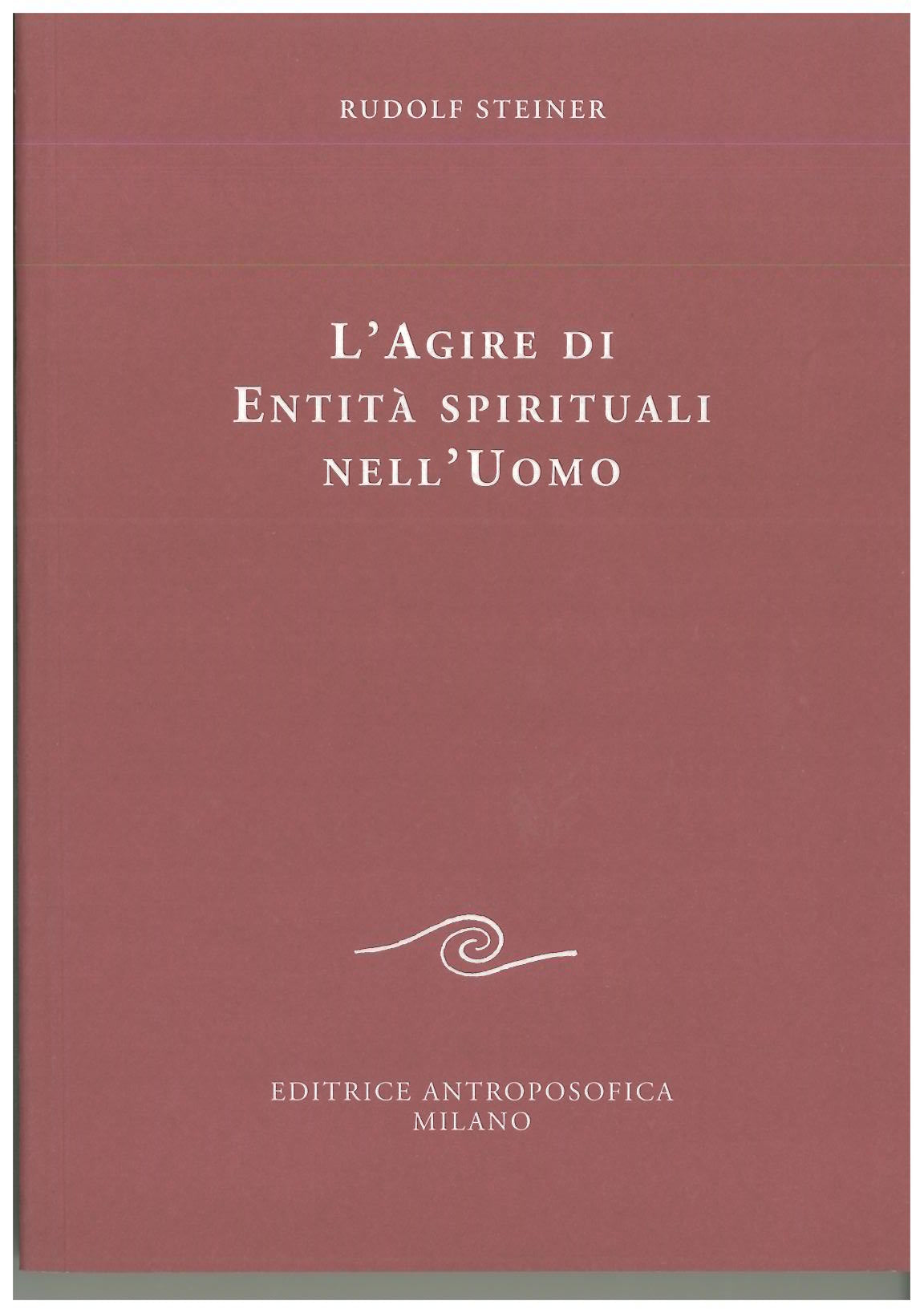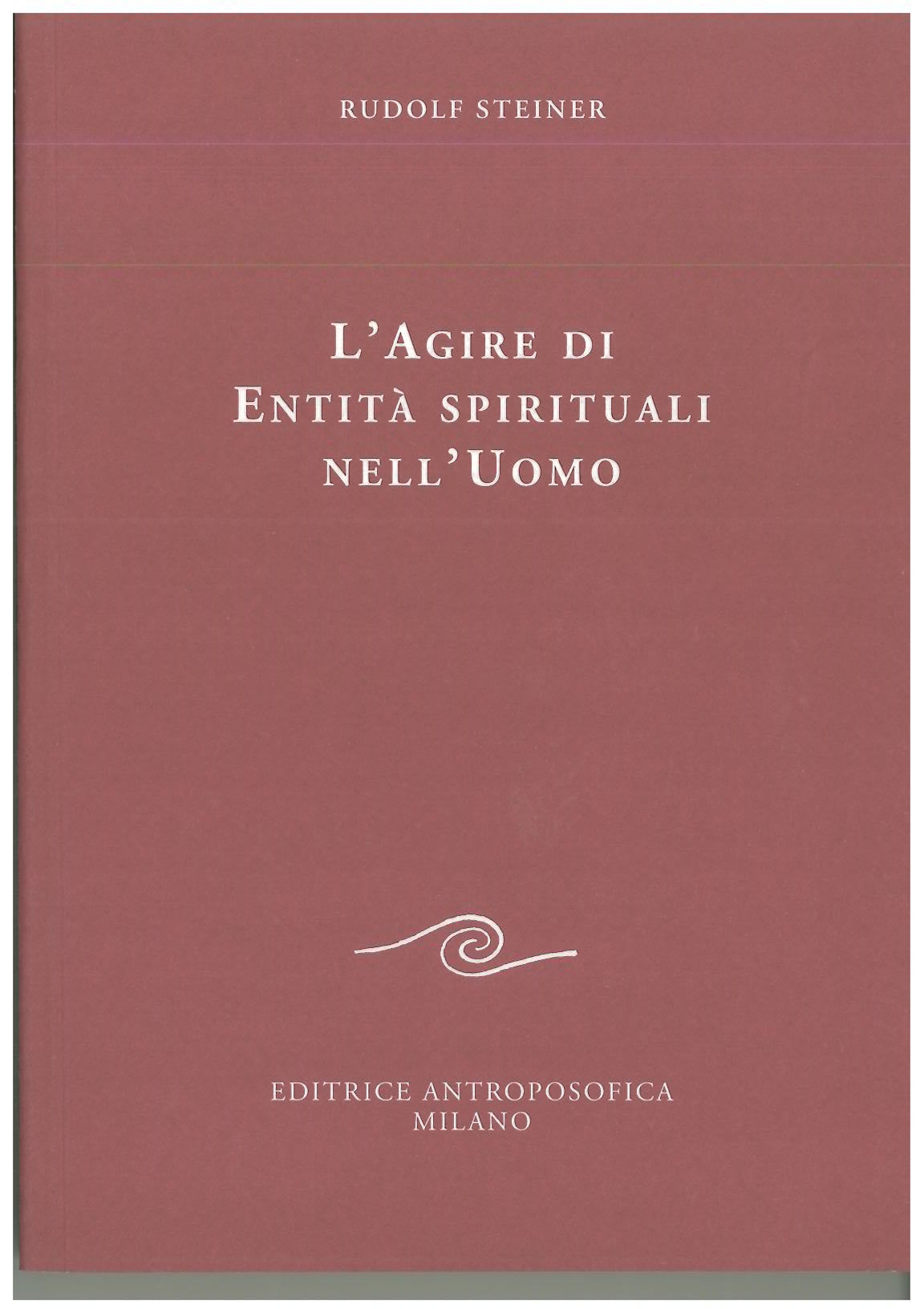102- The action of spiritual entities in man - Rudolf Steiner
Have a question?

102- The action of spiritual entities in man - Rudolf Steiner
Dettagli
This text, published in full in Italian for the first time, contains 13 conferences held in Berlin from 6 January to 11 June 1908.
The conferences, originally not intended for publication, were taken from a shorthand draft not revised by the author. In this regard, Rudolf Stainer says in his autobiography " Whoever reads these texts can fully accept them as what anthroposophy has to say... However, it should be kept in mind that in the texts not revised by me there are errors ."
Index:
- The group souls of animals, plants and minerals. The legend of Prometheus
- Planets, Sun and Zodiac
- Previous incarnations of Earth as actions of spiritual entities. Mars, Mercury and Jupiter
- The Spirits of Form. The myth of Cronus and Gaea
- Group soul consciousness on the ancient Moon
- Primordial forces as Spirits of the time
- Origin of yoga. Vedanta philosophy
- The religious systems of the Jews, Egyptians and Greeks
- Evolution of man from group soul to individuality
- Elementary beings
- Connection of man with spiritual entities in art.
AUTHOR

Rudolf Steiner was an Austrian philosopher, architect and reformist. He was the founder of anthroposophy, an esoteric current that mixes various dictates of the theosophical and German philosophical-idealist schools of the time. From the early years of his cultural education, Steiner aspired to find the perfect synthesis between mysticism and science.
This continuous research led him, after obtaining his doctorate, to move from Vienna to Weimar to work at the Goethe und Schiller Archiv, the Goethe archive. This work allowed him to publish the essay "Introduction to Goethe's Scientific Writings" and to develop his personal vision of the world.
In 1894, he published his most important essay, "The Philosophy of Freedom", which proposed a revolutionary concept for the time: the discovery that thought can lead to the realization of the spirit of the world.
The tome did not achieve much success but Steiner had created a solid foundation for the knowledge of the spirit, and he felt able to carry out his research in this field without any hesitation. Furthermore, the work on "The Philosophy of Freedom" allowed him to solve a series of enigmas about existence that had persecuted him for some time.
The insights contained in "The Philosophy of Freedom" are the basis of Steiner's legacy and have contributed essentially to the development of modern sciences. In particular of Medicine. In fact, Steiner was responsible for the Waldorf school movement, which created an educational approach based on understanding and love.
Today, Waldorf schools are all over the world.


